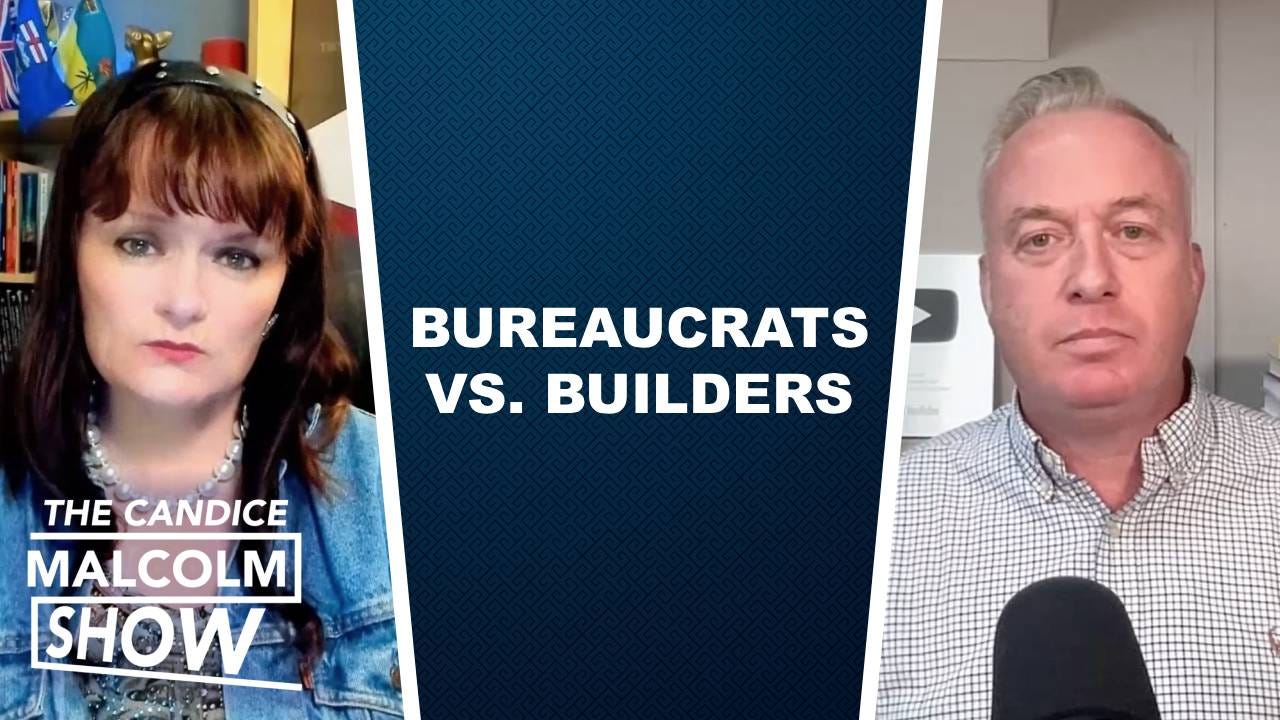When unions stop representing workers
Guest host Kris Sims is joined by Brian Lilley to break down the difference between trade unions and government unions, why taxes hammer workers, and whether Mark Carney’s promised cuts are real.
On this Labour Day episode of The Candice Malcolm Show, guest host Kris Sims pulls back the curtain on the noisy rhetoric that dominates this holiday. While union bosses lead parades and issue warnings that government services will be “cut to the bone,” Canadians deserve to hear the truth about who really represents workers.
Kris explains the key difference between trade unions—the carpenters, boilermakers, and plumbers who work with their hands—and government unions like PSAC, which represent bureaucrats inside Ottawa. Trade unions fight for the people who build and fix things. Government unions fight for bigger bureaucracies, higher taxes, and more members on the payroll.
Canadians are already paying a steep price. According to calculations highlighted by the Fraser Institute, the average worker loses more than 40 percent of their paycheque to taxes. That means less money for families to buy food, pay rent, or save for the future—while Ottawa keeps growing larger. Since 2015, the federal bureaucracy has ballooned by nearly 100,000 positions, yet services like passports and immigration processing have only gotten worse.
Joining Kris is Brian Lilley, political columnist at the Toronto Sun and host of the Full Comment podcast. Brian has spent decades covering politics in Ottawa and Queen’s Park. He explains why skilled trades are shifting away from the NDP and toward the Conservatives, what’s really going on with Mark Carney’s so-called budget “cuts,” and how government departments use scare tactics—threatening to close libraries, parks, or even the RCMP Musical Ride—to block meaningful restraint.
The two also discuss how the CBC continues to dodge accountability—refusing to disclose how much taxpayer money is spent on advertising, and hiding how many Canadians actually subscribe to its Gem streaming app. Brian shares his insights on why CBC stonewalls access-to-information requests and how its management culture differs from standard newsrooms.



I find it a bit of a threat when government union bosses are saying that services could be cut. Are they going to counsel those who do not lose their position to work slower? Those who want the if jobs should be showing that they can and will continue to carry their weight in the event that some employees are let go. Why would someone deliberately not work to their potential?
Take the "Way Back" machine, and you'll find that Unions were first created to protect productive, working people from corporate and institutional abuse that bordered on slavery. Unions were not without their faults, but they did serve a much-needed purpose.
Unions are not meant to enrich non-productive members of society such as CUPE. Employees whose sole purpose appears to be taking up space at the expense of those who do actual work. While, at the same time, guaranteeing them a job-for-life.
Unions for public employees is a bad idea. I mean, what's next? Politicians who get to name their own salary and receive multi-million dollar pensions after six years? C'mon, nobody would even believe that.